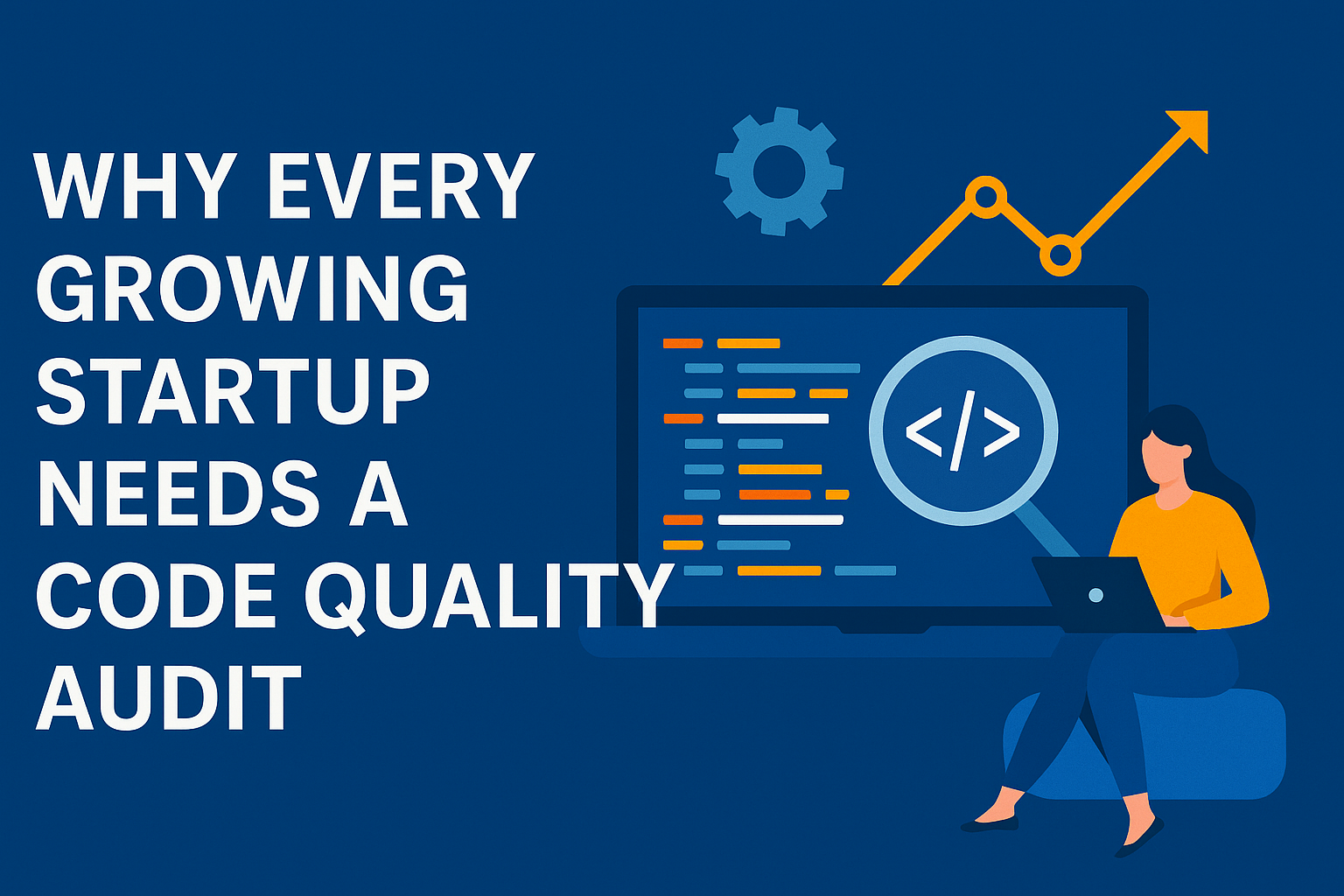Have you ever wondered if your codebase could be silently holding back your product’s growth?
For many startups, technical issues aren’t visible until they start scaling — and by then, fixing them becomes a costly, time-consuming challenge.

This is where a Code Quality Audit comes in. Think of it as a full health check for your software — spotting hidden flaws, improving maintainability, and ensuring your product can handle future growth without breaking.
Let’s explore why a code quality audit is not just a “good-to-have” but a must-have for every growing startup.
What is a Code Quality Audit?
A Code Quality Audit is a systematic review of your codebase to evaluate its readability, maintainability, security, and adherence to best practices.
It goes beyond surface-level bug checks — diving deep into your architecture, coding standards, and technical debt to ensure your software is built for long-term success.
For a startup in growth mode, this means:
- Identifying performance bottlenecks before they affect users
- Finding and reducing security vulnerabilities
- Improving developer efficiency through cleaner, more organized code
- Lowering long-term maintenance costs by preventing future issues
Why Code Quality Audits are Critical for Growing Startups
- Scaling Without Breaking: As your user base grows, your code will be tested in ways it hasn’t before. A code audit ensures your architecture can scale without constant firefighting.
- Reducing Technical Debt: Early shortcuts might speed up your MVP, but they create hidden debt. Audits reveal where this debt exists so you can fix it before it becomes unmanageable.
- Improving Development Speed: Clean, well-structured code means faster onboarding for new developers and smoother collaboration between teams.
- Boosting Security & Compliance: With cyber threats rising, audits help plug vulnerabilities and keep your product compliant with industry regulations.
5. Enhancing User Experience: Stable, high-quality code translates to fewer crashes, faster load times, and happier customers.

Code Quality Audit Checklist for Startups
A good code quality audit focuses on the core aspects that impact scalability, maintainability, and performance. Key areas include:
1. Code Readability & Consistency – Checks if naming conventions, formatting, and documentation follow a standard style so the code is easy for any developer to understand and maintain.
2. Architecture Review – Ensures the system is modular and scalable, making it easier to add new features and handle increased user load without major rework.
3. Testing Coverage – Reviews the presence and effectiveness of automated tests to catch bugs early and prevent regressions.
4. Performance Optimization – Identifies slow or inefficient parts of the code and database to ensure the application runs smoothly under growing traffic.
5. Security Review – Looks for vulnerabilities in APIs, authentication, and data handling to protect against breaches and ensure compliance.
How Azeosoft Can Help
While some basic audits can be done in-house, comprehensive code quality evaluations require expert eyes. At Azeosoft, we specialize in:
- Full-scale Code & Architecture Audits tailored for startups
- Identifying hidden technical risks before they escalate
- Recommending practical, cost-effective improvements
- Aligning your codebase with industry best practices for scalability and security
Connect with experts like Azeosoft to ensure your software is ready for the next phase of growth — without nasty surprises down the line.
TL;DR
A Code Quality Audit is your safety net for growth. It catches hidden flaws, reduces technical debt, and ensures your software is scalable, secure, and efficient.
For startups looking to grow without technical setbacks, investing in a professional code audit is one of the smartest moves you can make.

